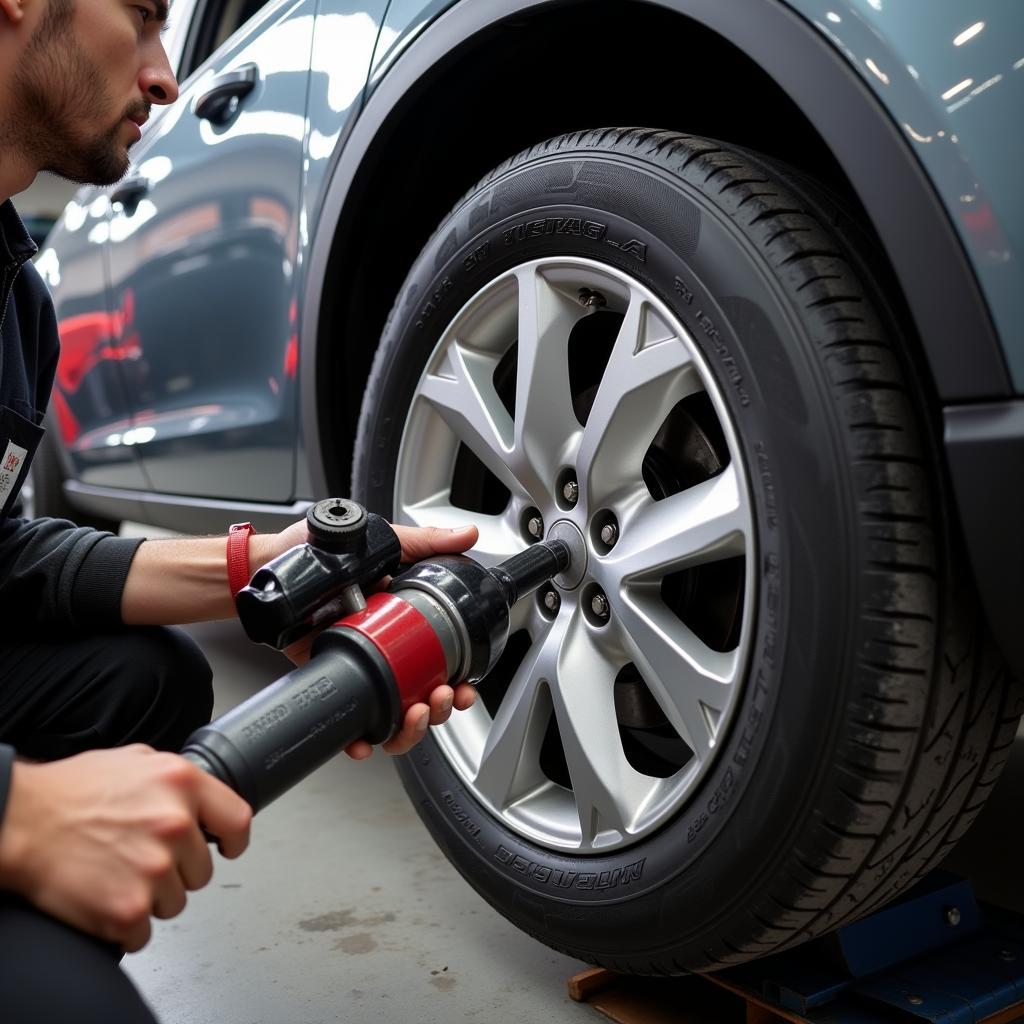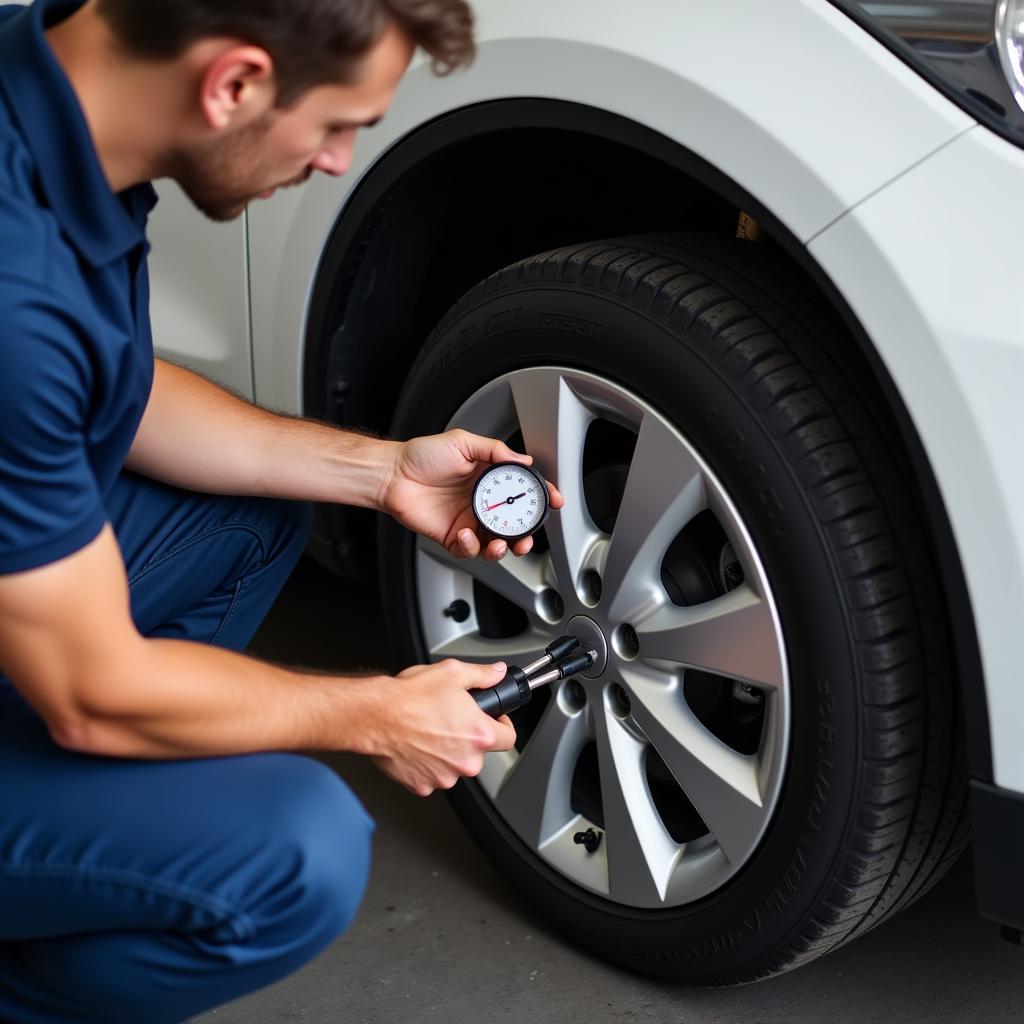How Many Miles Should You Service Your Car?
Knowing how many miles you should service your car can be a bit of a head-scratcher. Is it every 3,000 miles like your dad always said? Or does modern technology mean you can push it a bit further?
This comprehensive guide will break down everything you need to know about car servicing intervals, helping you keep your vehicle in tip-top shape without breaking the bank.
Traditional vs. Modern Car Service Intervals
The old adage of “every 3,000 miles or 3 months” is a relic of the past. While it might have held true for older vehicles, today’s cars are built to withstand more. Advancements in engine technology, oil formulations, and manufacturing processes mean your car can often go much further between services.
What Your Owner’s Manual Says (and Why You Should Listen)
The most reliable source for car service intervals is your vehicle’s owner’s manual. Car manufacturers meticulously design service schedules tailored to your specific make and model. Ignoring these recommendations could lead to premature wear and tear, voiding warranties, and even compromising your safety on the road.
Common Car Service Intervals
While your owner’s manual is king, some general guidelines can give you a ballpark idea:
- Oil Change: Most modern cars comfortably go 5,000-7,500 miles between oil changes with synthetic oil. However, factors like driving conditions and oil type can influence this.
- Filter Replacements: Air filters often need replacing every 12,000-15,000 miles, while cabin air filters are usually good for 15,000-30,000 miles.
- Spark Plugs: Depending on the type, spark plugs should be replaced every 30,000-100,000 miles.
- Fluid Checks: It’s best to check your brake fluid, coolant, power steering fluid, and transmission fluid regularly and top them off or replace them as needed.
 Mechanic checking car fluids
Mechanic checking car fluids
Signs Your Car Needs Servicing Sooner
Even if you haven’t hit the mileage milestones, certain symptoms might indicate your car needs some TLC:
- Dashboard Warning Lights: Never ignore illuminated warning lights on your dashboard, as they often signal a problem requiring immediate attention.
- Unusual Noises: Strange sounds like grinding, squealing, knocking, or hissing from your engine could indicate mechanical issues.
- Changes in Performance: A decrease in fuel efficiency, sluggish acceleration, rough idling, or difficulty starting could signal a need for service.
- Fluid Leaks: Puddles of fluid under your car are never a good sign. Different colored fluids indicate different problems.
Factors Affecting Car Service Intervals
Several factors can influence how often your car needs servicing:
- Driving Habits: Frequent stop-and-go city driving, towing heavy loads, or driving in extreme weather conditions can put extra strain on your vehicle, necessitating more frequent service.
- Oil Type: Synthetic oil generally lasts longer than conventional oil, extending the time between oil changes.
- Vehicle Age and Condition: Older cars or those with existing mechanical issues might require more frequent servicing.
The Importance of Regular Car Servicing
Staying on top of your car’s service schedule offers numerous benefits:
- Increased Lifespan: Regular maintenance can significantly extend the life of your vehicle, preventing costly repairs down the line.
- Improved Safety: Well-maintained cars are safer to drive, as regular servicing ensures all components function optimally.
- Enhanced Performance: A well-tuned engine runs more efficiently, delivering better fuel economy and performance.
- Higher Resale Value: A comprehensive service history can boost your car’s resale value, making it more attractive to potential buyers.
Don’t Forget About Your Tires!
While not strictly part of car servicing, tire maintenance is crucial for safety and performance. Check your tire pressure regularly, rotate them every 5,000-8,000 miles, and replace them when the tread wear reaches 2/32 of an inch.
 Mechanic rotating car tires
Mechanic rotating car tires
FAQs about Car Servicing
Q: How much does a basic car service cost?
A: The cost of a basic car service can vary significantly based on your location, the make and model of your car, and the specific services included. You can find more detailed information about car service costs on our page “how much is a basic car service“.
Q: What is involved in servicing a car?
A: Car servicing typically involves a range of checks and replacements, including an oil change, filter replacements, fluid top-ups, and a visual inspection of key components. To get a better understanding of what’s included in a car service, visit our dedicated page “what is involved in servicing a car“.
Q: How often should I service my car if I don’t drive much?
A: Even if you don’t rack up many miles, it’s still essential to service your car at least once a year. Oil can degrade over time, and other fluids can evaporate, potentially causing problems.
Q: Can I service my car myself?
A: While some basic maintenance tasks, like checking fluid levels and changing air filters, can be done at home, it’s generally recommended to have a qualified mechanic perform more complex services.
Q: How do I find a reliable car service center?
A: Look for certified mechanics, ask for recommendations from friends and family, read online reviews, and don’t hesitate to ask about pricing and warranties.
Keeping Your Car in Top Condition
Understanding how many miles you should service your car is crucial for maximizing its lifespan, performance, and safety. While general guidelines exist, always consult your owner’s manual for the most accurate recommendations. Remember, regular maintenance is an investment, not an expense. It keeps you safe on the road and ensures your car runs smoothly for years to come.
For more information on car servicing costs and what’s involved in different service intervals, you can visit our pages:
If you’re looking for expert car servicing, don’t hesitate to reach out to us. Our team of qualified technicians is dedicated to keeping your vehicle running at its best. Contact us via WhatsApp: +1(641)206-8880, Email: [email protected]. We have a 24/7 customer support team available to assist you.

